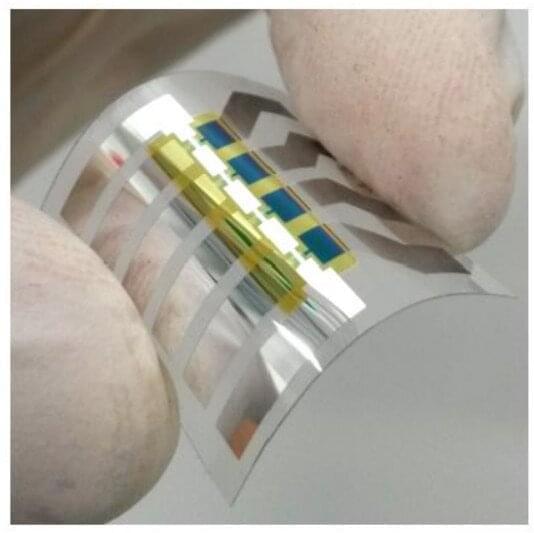Scientists at the Institute of Applied Physics at TU Dresden have come a step closer to the vision of a broad application of flexible, printable electronics. The team around Dr. Hans Kleemann has succeeded for the first time in developing powerful vertical organic transistors with two independent control electrodes. The results have recently been published in the renowned online journal Nature Communications.
High-definition roll-up televisions or foldable smartphones may soon no longer be unaffordable luxury goods that can be admired at international electronics trade fairs. High-performance organic transistors are a key necessity for the mechanically flexible electronic circuits required for these applications. However, conventional horizontal organic thin-film transistors are very slow due to the hopping-transport in organic semiconductors, so they cannot be used for applications requiring high frequencies. Especially for logic circuits with low power consumption, such as those used for Radio Frequency Identification (RFID), it is mandatory to develop transistors enabling high operation frequency as well as adjustable device characteristics (i.e., threshold-voltage). The research group Organic Devices and Systems (ODS) at the Dresden Integrated Center for Applied Photophysics (IAPP) of the Institute of Applied Physics headed by Dr.
